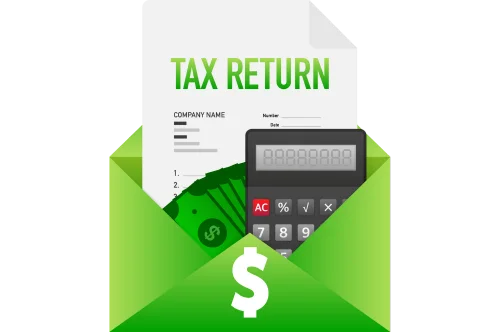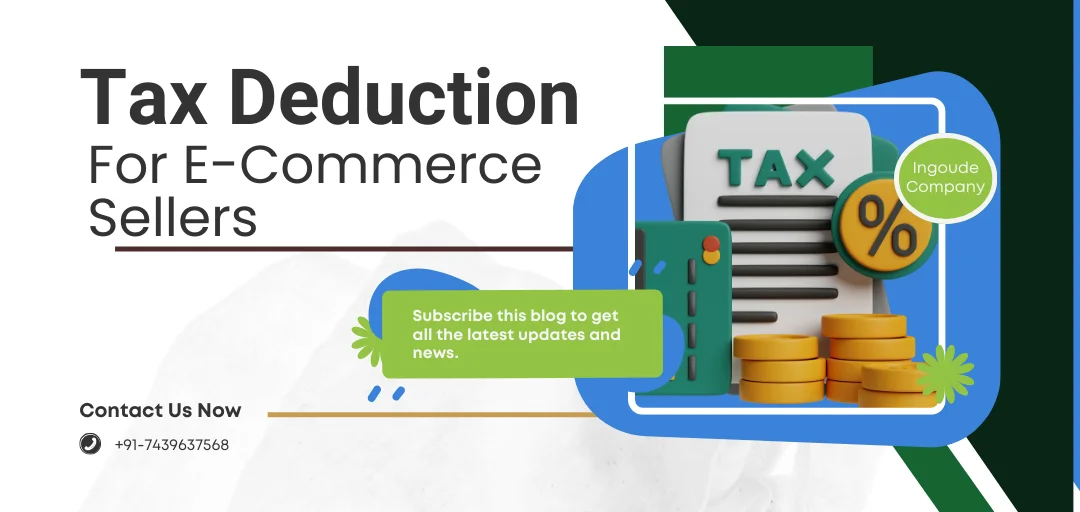Tax deduction for e-commerce can be a challenge, e-commerce sellers often juggle multiple income sources and business expenses. Knowing which deductions apply to your business can lead to substantial savings, reducing your taxable income and boosting your bottom line. In this guide, we’ll break down the essential tax deductions for e-commerce sellers, helping you make the most of these benefits.
1. Why Tax Deductions Matter for E-commerce Sellers
For e-commerce sellers, understanding tax deductions is crucial to optimizing profit margins. Unlike salaried individuals, who may have fewer tax-deductible expenses, e-commerce businesses face a variety of operational costs that can be deducted from their taxable income. Knowing the ins and outs of tax deductions for e-commerce sellers can transform how you approach tax season and how much you ultimately owe.
2. Common Tax Deductible Expenses for E-commerce
To minimize your taxable income, you’ll want to explore all deductible expenses. Here’s a rundown of common deductions that can benefit e-commerce sellers:
Cost of Goods Sold (COGS): Any expenses related to acquiring or producing your products are deductible. This includes manufacturing costs, shipping from suppliers, and materials.
Shipping and Delivery Costs: Expenses associated with delivering products to your customers, such as postage and shipping supplies, are also deductible.
Online Marketplace Fees: If you sell on platforms like Amazon, Etsy, or eBay, the fees you pay to these marketplaces qualify as tax-deductible business expenses.
Software and Tools: Most e-commerce sellers rely on a suite of digital tools, including website hosting, inventory management software, and marketing automation. These costs can be written off as necessary business expenses.
By knowing these common tax deductions for e-commerce sellers, you can effectively reduce the taxable portion of your revenue.
3. Office Expenses and Home Office Deduction
Many e-commerce sellers operate their businesses from home. The IRS and other tax authorities allow a home office deduction if you use part of your home exclusively for business purposes. This deduction includes a portion of your rent or mortgage, utilities, and maintenance expenses. However, it’s essential to meet the requirements, as home office deductions are sometimes scrutinized by tax authorities. When calculating tax deductions for e-commerce sellers, this one can be particularly beneficial if you’re a home-based operation.
4. Marketing and Advertising Costs
Marketing is a necessary expense for any business, especially for e-commerce sellers competing in a crowded digital landscape. Advertising costs, including social media ads, search engine ads, and influencer partnerships, are tax-deductible. This deduction helps e-commerce sellers reinvest in growth and expand their reach without overburdening their tax obligations. Remember to keep track of your marketing invoices, as these are essential documents when claiming tax deductions for e-commerce sellers.
5. Tax Deductions for Equipment and Supplies
From computers to cameras, the equipment used to run your business is generally tax-deductible. For instance:
Computer Equipment: If you bought or leased computers or tablets for managing your store or processing orders, the cost can be deducted as a business expense.
Photography Equipment: E-commerce often relies on high-quality images to attract customers, making cameras and lighting equipment common deductions.
Office Supplies: Smaller expenses like paper, ink, and office stationery are also deductible under tax deductions for e-commerce sellers.
In some cases, you may also be able to claim a portion of your phone and internet costs if they are primarily used for business purposes. These deductions, though often smaller, collectively contribute to a significant reduction in taxable income.
6. Employee Wages and Freelancer Costs
If you’ve scaled your e-commerce business to the point of needing additional help, any wages or fees you pay to employees, contractors, or freelancers are deductible. This includes wages for tasks like order fulfillment, customer support, social media management, and product photography. Tracking these costs carefully allows e-commerce sellers to claim tax deductions more accurately.
7. Tax Deductions for Business Insurance
Business insurance premiums, such as liability insurance or insurance for inventory protection, are tax-deductible. Insurance is often overlooked by small e-commerce sellers, yet it’s a crucial safety net, especially if you’re dealing with high-value products. Understanding tax deductions for e-commerce sellers in the context of insurance ensures that you can protect your business while minimizing taxes.
8. Vehicle Expenses
If you use a vehicle primarily for business purposes—say, for transporting inventory or making deliveries—you can deduct a portion of your vehicle expenses. The IRS offers two options here: either track your actual expenses (such as fuel, repairs, and insurance) or use the standard mileage rate. Vehicle expenses can be a valuable deduction for e-commerce sellers who handle much of their own logistics.
9. Travel and Meal Expenses
In certain situations, travel expenses related to your e-commerce business are also tax-deductible. For example, if you travel to meet suppliers, attend a conference, or engage in industry networking, your travel and accommodation expenses may be deducted. Meals, too, can be deducted, although they typically need to be business-related and are often capped at 50%. Tax deductions for e-commerce sellers in the travel and meals category can help offset expenses incurred during growth-focused trips.
10. Retirement Contributions as a Deduction
As an e-commerce entrepreneur, you’re responsible for your retirement savings, but the good news is that retirement contributions can offer significant tax advantages. Contributions to an Individual Retirement Account (IRA) or similar plans can reduce your taxable income, allowing you to plan for the future while also benefiting from immediate savings.
11. Professional Fees and Subscriptions
Finally, if you engage professionals—like accountants, lawyers, or tax consultants—the fees you pay for their services are tax-deductible. Additionally, subscriptions to industry-specific publications or membership fees to e-commerce organizations can also be written off. Professional assistance is often a worthwhile expense, especially when it comes to ensuring you’re maximizing all tax deductions for e-commerce sellers.
Final Tips to Maximize Your Tax Deductions
Stay Organized: Maintain meticulous records throughout the year, including receipts, invoices, and statements. Digital tools, like expense management apps, can be invaluable.
Consult a Tax Professional: Tax laws change frequently, and professional advice can be a key investment in navigating tax deductions for e-commerce sellers.
Separate Business and Personal Finances: Keep separate bank accounts and credit cards for business transactions to simplify your records and avoid complications during tax season.
Conclusion
Knowing which expenses qualify for tax deductions for e-commerce sellers can be transformative for your business finances. By familiarizing yourself with deductible expenses like office supplies, marketing costs, equipment, and travel, you can ensure that you’re minimizing your taxable income and keeping more of your earnings. From tracking expenses year-round to consulting a tax expert, these steps will help you navigate tax season with confidence. Remember, every dollar saved in taxes is another dollar you can reinvest into your business growth.
Our Tax Services

ITR Filing
ITR Filing services provide full assistance with Income Tax Return submissions, ensuring accurate and timely compliance with all tax regulations and statutory requirements for both individuals and businesses.

Tax Audit
A tax audit reviews financial records to ensure compliance with tax laws, verifying income, deductions, and expenses. It minimizes errors and helps businesses avoid penalties, ensuring accurate tax reporting.

E-Commerce Tax Services
Navigating taxes as an e-commerce seller can be challenging due to the unique complexities of online businesses. Here’s a quick overview of the essential tax services that can help simplify compliance and optimize tax savings



